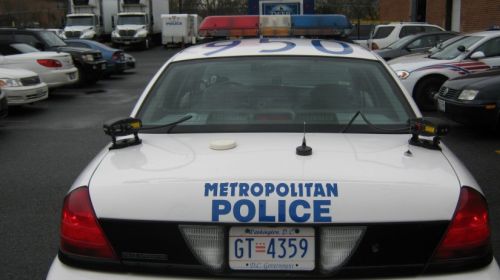
Thanks to Edward Snowden we now understand that the NSA runs many dragnet surveillance , some of which target Americans. But a yesterday from Washington, D.C. public radio station WAMU is a reminder that dragnet surveillance is not just a tool of the NSA‚ÄĒthe local police use mass surveillance as well.
DC‚Äôs Metropolitan Police Department uses cameras to scan vehicle license plates in huge numbers and saves all the data for two years, even though only a tiny fraction‚ÄĒ0.01 %‚ÄĒturn out to be associated with any possible wrongdoing. Take a look at these numbers:
Plates Scanned
Hits
2011
125,284,584
16,220
2012
204,285,053
22,655
Through 09/2013
150,206,974
22,655
In 2012, the police in Washington scannedover 204 million license plates. But only 22,655 were associated with some possible wrongdoing (what the chart refers to as ‚Äúhits‚ÄĚ). And a hit isn‚Äôt evidence of guilt. It‚Äôs evidence your plate was in a database. And your plate may well be in a database because, as we‚Äôve seen in other areas of the country (check out our report on the use of plate readers nationwide), these databases can include people who violated vehicle emissions programs or are driving on suspended or revoked licenses. These people shouldn‚Äôt be on the road, but they are also not major offenders.
The key point is this: 99.9 % of the data pertains to people not suspected of wrongdoing. Why should innocent drivers have their movements stored for two full years?
The new report echoes data first unearthed by the ņŌįń√ŇŅ™ĹĪĹŠĻŻ's local office and revealed two years ago in to local legislators.
This brings us back to the NSA program. What do the NSA and DC Metropolitan Police Department have in common? As we have discussed before, neither appears to be restrained by any sense of proportionality. The data collection is vast, and the gain is either uncertain or negligible. In the NSA’s case, it is storing records about every single phone call each of us makes and keeping it in a database for 5 years, even in the absence of that mass collection is needed to make us safer. (The MPD refused to comment on the plate reader program.)
When it comes to reforming surveillance, it is programs like these that are particularly good targets. While some may be willing to trade privacy for security, here we appear to be giving privacy away and the government either can’t or won’t make the case that we’re getting anything in exchange.

